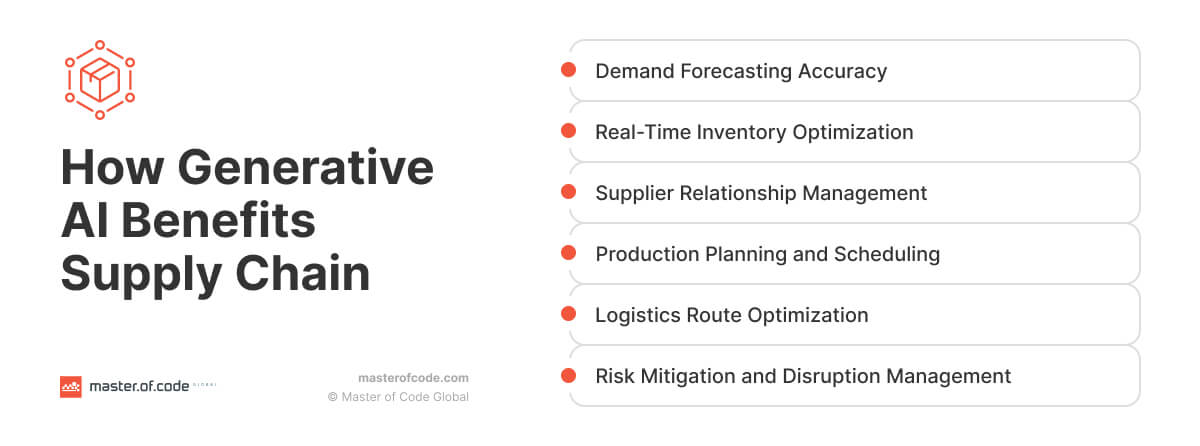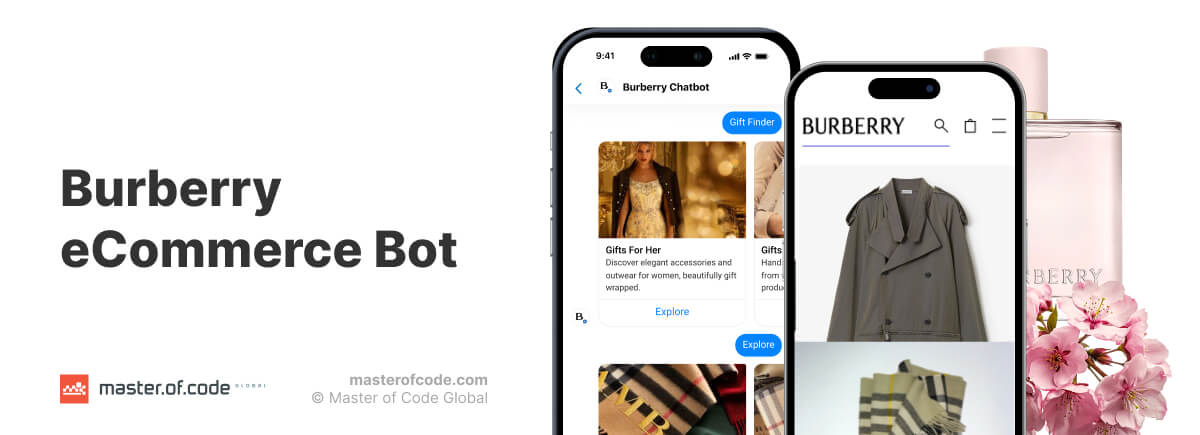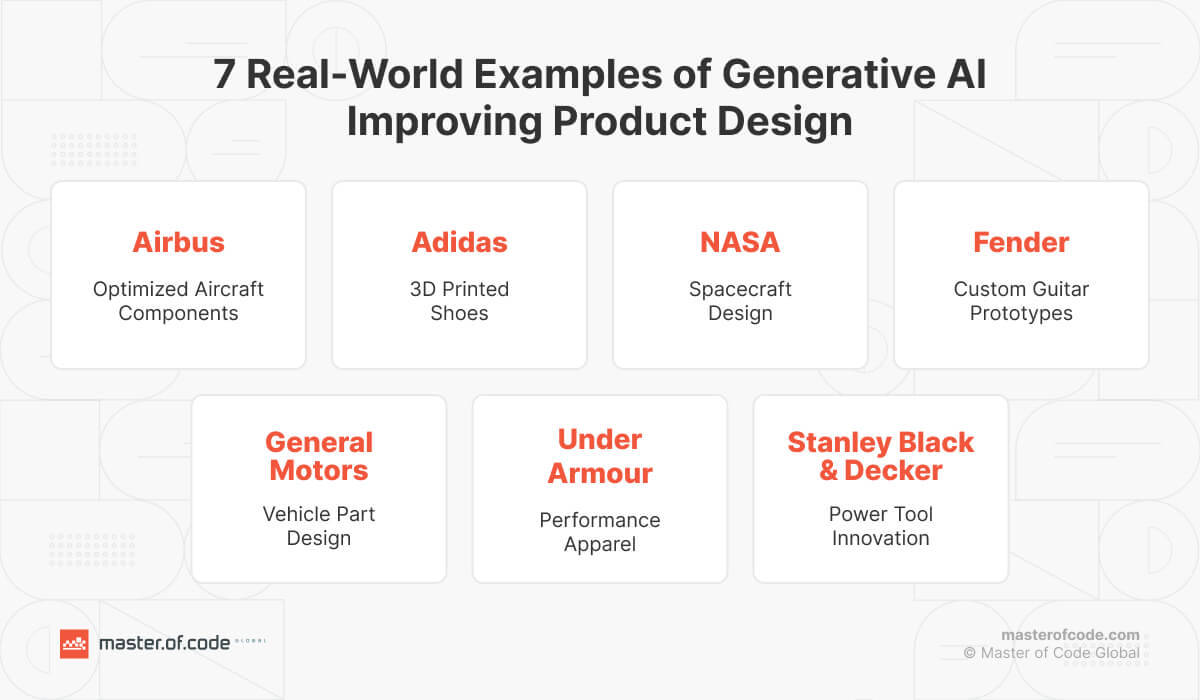Visualize a world where your favorite shampoo anticipates a bad hair day before you even do, or your go-to coffee brand offers a personalized blend based on your current mood. This isn’t science fiction; it’s the reality of Generative AI in consumer products.
Unlike traditional bots, which are focused on analyzing data and making predictions, Gen AI goes a step further by creating new content, designs, and experiences. Think of it as a creative partner that can generate everything from product cover to personalized marketing campaigns. Deloitte states that 94% of business executives believe that AI is a key to success in the future.
In the cutthroat world of consumer packaged goods, the stakes are high. Companies that fail to embrace artificial intelligence risk falling behind their competitors. By leveraging Generative AI for eCommerce retention, brands can differentiate themselves and drive innovation. It’s time to buckle up for a revolution in your shopping carts.

Table of Contents
Pain Points and How Artificial Intelligence Provides Relief
The Consumer Packaged Goods industry is no stranger to pressure. Decision-makers constantly face a whirlwind of challenges: competition intensifies, consumer preferences shift at an unprecedented pace, and the need for innovation has never been higher. On top of this, businesses must maintain profitability while staying relevant to today’s increasingly discerning, tech-savvy shoppers. It’s no wonder that many leaders in the sector find themselves asking: How can we keep up without burning out?
The key lies in turning these pain points into opportunities, and that’s where artificial intelligence steps in. Today, 64% of executives are interested in adopting Generative AI. It offers a solution that can revolutionize how companies operate, innovate, and engage with customers. It’s no longer just about predicting trends – it’s about generating experiences that resonate with shoppers in real time.
Fighting Common Bottlenecks
At the heart of the CPG industry’s challenges is the relentless demand for innovation. Consumers crave products that reflect their individual needs, but catering to every client with individualized offerings can be costly and time-consuming. Many companies find themselves struggling to scale personalization while remaining efficient.
Additionally, rising costs of raw materials and supply chain disruptions place further strain on margins, leaving little room for error. Don’t forget about the competition – companies hire Generative AI engineers to keep up with consumer expectations and risk losing ground to more agile competitors.
Keeping Pace With The Market
The race against time to stay ahead in the marketplace is relentless. Fortunately, the subset of artificial intelligence that creates new content based on existing data can solve this issue. By using machine learning algorithms to analyze patterns in consumer behavior, it can generate personalized product suggestions, design customized marketing campaigns, and even create new item variations. This technology doesn’t just automate tasks – it enables businesses to craft unique journeys at scale.
Take product development as an example. Traditional R&D can be a lengthy and expensive process, but Generative AI in CPG can accelerate it by analyzing market trends, consumer preferences, and even competitor data to suggest new product ideas. For instance, an AI chatbot solution for eCommerce may help beauty brands get user insights to create custom skincare formulas based on individual customers’ skin types and preferences. Such tools deliver tailor-made approaches at a fraction of the usual time and cost.
Sephora, a global beauty retailer, is a good example of used innovation. The company utilizes AI to provide personalized product recommendations through its Virtual Artist tool. By analyzing users’ facial features and skin tones, the AI-driven system suggests makeup products that are tailored to individual needs, such as foundation shades, eyeshadows, or lip colors.
Boosting Revenue and Reducing Costs
For companies, the ROI of Gen AI is tangible. Brands can increase revenue by offering 24/7 support and cutting call center costs. According to Accenture, 29% of working hours across supply chains could be automated by Generative AI. Even though the investments are high, it’s worth it in the end, as you get even bigger revenue due to real-time content optimization, predictive analytics, and intelligent insights. For example, GAI impacts your sales, this way generating additional profit.
At Master of Code Global, we developed an application for Shopify, OneClickUpsell, that drives significant revenue growth. With this AI-powered solution, merchants can witness a 10-50% increase in average order value and a 16% average conversion rate. With features like dynamic product offerings, automated descriptions, and split testing, OneClickUpsell optimizes your sales process and elevates the customer experience. As the first post-purchase upsell app integrated with Shopify’s Shop App, we’re committed to staying ahead of the curve.
Decoding the Consumer Mind: Gen AI’s Unique Strengths
Beyond the hype, smart technology is already making a tangible impact on the CPG industry. For instance, some brands are using it to create highly personalized suggestions or accelerate product development. Others are experimenting with cover designs that are both aesthetically pleasing and functional.
As artificial intelligence continues to evolve, we can expect to see even more innovative applications in the years to come. So, what is the strong suit of generative algorithms and how can they address the growing customer demands?
Tailored Experiences
In today’s market, users want brands to understand them on a personal level. They crave products tailored to their buying habits, mood, and lifestyle. Statistics show that 71% of the surveyed expect personalized company interaction. But how to keep up with such a demanding audience and how to discover their preferences? Generative AI excels at this by analyzing vast amounts of data – from purchase histories to social media activity – to create highly individualized suggestions.
Imagine stepping into a tech store and being greeted by a virtual assistant who recommends the perfect laptop based on your specific needs without explaining them numerous times, whether you’re a student, a creative professional, or a gamer. Or receiving a marketing email with product recommendations that align with your recent online browsing habits. A custom-developed retail chatbot doesn’t just predict what a buyer might like; it generates an experience that feels bespoke to each individual. This level of hyper-customization drives higher conversion rates and fosters brand loyalty.
Agile Product Creation
Time-to-market has become a critical factor for success in the CPG industry. Traditionally, product development could take months or even years, but Generative AI is changing the game. By leveraging these algorithms, brands can quickly generate, test, and refine product ideas, packaging, and presenting strategies—all without the usual time-consuming research and development processes.
Imagine the automotive industry, where innovation and speed are paramount. Artificial intelligence can analyze market trends, competitor data, and consumer preferences to suggest new vehicle designs and features in a fraction of the time. For instance, Generative AI for eCommerce might generate multiple car design concepts based on real-time data, allowing companies to test and iterate faster than ever before. This rapid innovation cycle significantly shortens time-to-market, giving brands a competitive edge.
Elevating Your Customer Journey
Almost one-half of the surveyed think AI agents can be empathetic when addressing concerns. That’s why one of the most visible benefits of Generative AI in consumer goods and services is the enhancement of the overall user engagement. By offering interactive shopping and personalized content, digital tools elevate the way consumers engage with brands. A chatbot that not only answers questions but also anticipates their needs based on previous interactions and purchases is a treasure. Or an interactive shopping tool that generates outfit recommendations based on your current wardrobe combined with the latest fashion trends.
Machine intelligence also enables brands to deliver highly customized content, whether through personalized emails, social media ads, or website interactions. The latter keeps consumers engaged and ensures brands are constantly top of mind.
Achieving a Smarter Supply Chain
Beyond consumer-facing innovations, Generative AI in retail is also a powerful tool for optimizing behind-the-scenes operations. Demand forecasting, inventory management, and supply chain efficiency all benefit from the ability to process and analyze large datasets. By predicting demand with greater accuracy, companies can reduce overproduction, minimize stockouts, and ensure timely product delivery. It not only improves operational efficiency but also has a direct impact on cost savings.

Learn how to make planning easier with Generative AI in supply chain
Real-World Applications of Generative AI in CPG Industry
Matching Individual Needs
Being offered a custom skincare routine based on analysis of your skin’s condition in a beauty store is not science fiction but a reality enabled by Generative AI. Master Of Code Global developed the LaMer chatbot which takes customer engagement to the next level with 5 brand new features designed to captivate and personalize the experience. It recommends a distinctive skincare regimen tailored to the specific concerns, powered by 3,350+ meticulously trained utterances for precise interactions.
For more complex queries, the chatbot seamlessly transitions to live chat, instantly connecting consumers with a La Mer beauty consultant for a personal touch. With 7 years of dedicated support behind it, the bot not only enhances the journey for buyers but also adds a human connection when it’s needed most. As Coco Chanel once said, “Beauty begins the moment you decide to be yourself” – and this tool ensures that every skincare regimen is as unique as its future owner.
The food industry is another sector where personalized recommendations are making waves. Such a company could analyze shoppers’ dietary preferences, allergies, and even the contents of their fridge to suggest tailored recipes. Global leaders like Nestlé and Unilever are already tapping into artificial intelligence to provide meal ideas that cater to specific nutritional needs and available ingredients. This increases the likelihood of repeat purchases by making shopping more engaging and convenient.
Advanced Product Design Strategies
Generative AI in CPG is a powerful tool for designing new flavors and packaging, allowing brands to cater to specific demographics with unprecedented precision. Beverage companies, for instance, can use digital tools to generate new flavor combinations by analyzing consumer taste preferences, social trends, and market data. PepsiCo recently employed AI to develop new snack flavors, which were then tested with different customer segments to ensure maximum appeal.
In fashion, manufacturers and resellers can use Generative AI in the consumer goods sector to create unique clothing designs. At Master of Code Global, we developed a special chatbot for Burberry. It takes personalization to new heights with its custom galleries, offering curated displays that allow consumers to explore a variety of styles that meet their preferences. Whether browsing the latest collections or discovering exclusive items, the virtual assistant ensures every interaction is unique, giving users a sense of exclusivity as they uncover fashion that fits their individual taste. It doesn’t just stop there—people also receive custom-present suggestions, perfectly composed to match their style, adding an element of surprise and delight to their shopping journey.

By connecting clients in such an interactive way, the Burberry chatbot enhances buyer engagement, as well as immersion into the corporate storytelling, and fosters lasting loyalty. Its ability to deliver bespoke experiences strengthens the brand’s image, setting Burberry apart from the competition and solidifying its position as a leader in the luxury market.
Campaigns That Drive Interaction
Marketing is one of the areas where artificial intelligence shines brightest. By creating personalized ads, interactive games, and engaging social media content, AI helps brands capture consumer attention in innovative ways. For example, a fashion brand could use digital tools to generate unique, interactive Instagram stories that invite users to engage with products in real time, offering style tips based on their browsing history.
Marketing campaigns can also be highly adaptive. Nike, for instance, creates dynamic ads that change based on factors like weather, location, or even a user’s current activity level. Imagine receiving a personalized ad for rainproof running gear on a rainy day. Or this could be lightweight, breathable clothing when the temperature spikes. Nike’s digital campaigns make that possible. Customization keeps marketing fresh and ensures content remains relevant to each individual consumer, driving higher engagement and boosting conversion rates by delivering the right message at the perfect moment.
Customer Service Powered by Machines
Client assistance is another area where Generative AI in consumer goods is making a significant impact. Chatbots are increasingly being used to provide instant help, answering common queries and resolving issues in real time. These tools can handle everything from order tracking to product recommendations, freeing up human agents to focus on more complex or emotionally charged interactions.
For example, H&M uses AI to assist buyers in finding the right size or style based on their purchase history and likes. If a more complicated issue arises, the bot can seamlessly transfer the consumer to a human agent with all the relevant information, ensuring a smooth and efficient service.

Conclusion: The Future of CPG is Generative
Machine intelligence is revolutionizing the Consumer Packaged Goods industry, unlocking new ways to innovate, personalize, and engage with users. The future of shopping will no longer be one-size-fits-all; instead, customers will expect brands to anticipate their needs, offering tailored experiences and products that reflect their vision. From personalized skincare routines to digital client service, CPG leaders are setting a new standard for what’s possible in consumer goods.
For businesses, the message is clear: those who embrace Generative AI will not only meet these rising expectations but also gain a significant competitive edge. The time to act is now – leverage artificial intelligence to reimagine how you connect with people, optimize your processes, and stay ahead of the curve in this rapidly evolving market.
Ready to build your own Conversational AI solution? Let’s chat!






